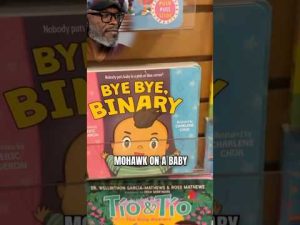In today’s world of split-second viral moments, privacy seems more like a relic of the past than a reality of the present. This idea was starkly illustrated at a Coldplay concert in Foxboro, Massachusetts, at Gillette Stadium, where a kiss cam captured a couple in an awkward situation. The video, since gone viral, shows a man identified as Andy Byron and his HR director, Kristin Cabot, shrouded in a protective embrace, only to dissolve into embarrassment when their image was displayed for all attendees to see. Unfortunately for Byron, the scandal that followed may well be written in indelible ink.
The man and his supposed companion were thrust into the spotlight, not because of the concert they were attending, but because of their gesture. While these sorts of public displays usually elicit cheers, Byron and Cabot’s reaction struck a different chord. The duo appeared uncomfortable and attempted to cover with a hastily executed turn of back and an embarrassed squirm, suggesting to many spectators that this wasn’t just a shy moment between acquaintances. Speculation quickly flooded the internet, with observers deducing that this incident could signal an affair. The sharp irony wasn’t lost: an HR director caught in what seems to be a workplace relationship, a situation often frowned upon within corporate cultures.
Adding to the intrigue, it’s alleged that Andy Byron is married, complicating the narrative further. While nothing is officially confirmed from the involved parties, social media served as the courtroom of public opinion. Infamous internet sleuths, eager for real-time details, latched onto every update. Users followed the coverage like it was a live news event, replete with emotional support for Byron’s spouse, encouraged to pursue divorce with gusto. The saga seemed to unfold like a soap opera, each twist more dramatic than the last, blending reality with the relentless churn of the 24-hour news cycle.
This incident raises larger questions about privacy in the social media age, where one captured moment can swiftly alter lives. Once upon a time, tabloid tales were the remit of celebrities, but in this brave new digital age, anyone is a potential target. Even as the fate of Byron and his family hangs in uncertainty, there lies a broader debate about the stakes of personal decisions made under the blinds of anonymity which, given the right (or wrong) circumstances, can transform into a public spectacle.
As this story unfolds, observers might consider the impact of personal lives unraveled in public view. From a conservative standpoint, one might argue this example reinforces the need for old-fashioned values: fidelity, discretion, and professionalism. Perhaps a lesson can be drawn that in an era thirsty for the downfall of others, vigilance is not just wise but required. As the digital age marches on, so too should prudence guide personal conduct, lest one’s life becomes just another viral moment, dissected at the fickle whim of the internet.







